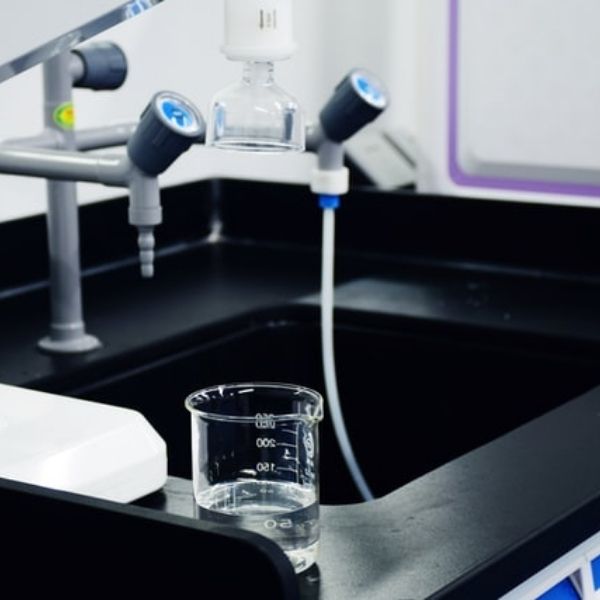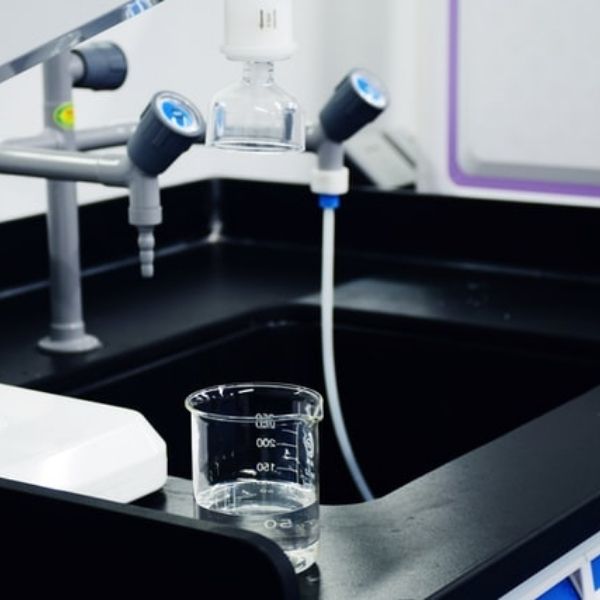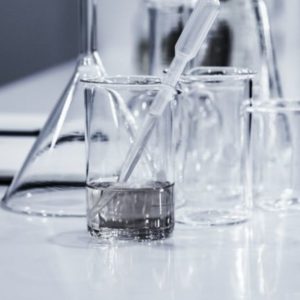What Is Water Hardness?
You must have heard the term hard water, but what exactly does it mean? The simple definition is that the hardness of water simply refers to the amount of dissolved calcium and magnesium in it.
It is very easy to recognize hard water in our water systems. Did you happen to feel any residue left on your hands the last time you washed them? That is a clear sign of water hardness.
The soap reacts with the calcium in hard water and forms ‘soap scum’. Problems like this utilize more water when doing anything.
Hence, the dissolved minerals in hard water can cause some issues.

What Is the Ideal Water Hardness Level?
The concentration of calcium carbonate is what determines the ideal water hardness. The catch, however, is that different organizations have a distinct ‘ideal’ level of water hardness.
Here are the classifications by some of these:
Soft water
According to the US Environmental Protection Agency’s 2018 Water Quality Parameters, calcium carbonate concentration of less than 75 milligrams per liter is soft water.
For the US Geological Survey, this number is less than 60 milligrams per liter.
Moderately hard water
For the USEPA, 75 to 150 mg/L of calcium carbonate is moderately hard water. For the Geological Survey, it is 61 to 120 mg/L.
Hard Water
According to USEPA, 150 to 300 mg/L of calcium carbonate is considered hard water. According to the Geological Survey, the hard water range starts at 120 mg/L and goes up only till 180 mg/L.
This range signifies a big difference.
Very Hard Water
For the GS, any concentration of calcium carbonate more than 180 mg/L makes the water ‘very hard.’ The USEPA, however, provides more leverage with this number and keeps it above 300 mg/L.
Then there are other scientists who have their own classifications. All these numbers are confusing to tackle.
The easiest standard to understand is that of the American National Standards Institute. Their definition of soft water is any water in which the concentration of calcium carbonate or any other dissolved minerals is less than one grain per gallon.
How to Measure the Water Hardness Level?
The first important factor to know is the scale we measure water hardness on.
The first is milligrams per liter which is the same as parts per million (ppm).
Another measure is grains per gallon (GPG). You can convert a ppm value to grains per gallon by dividing it by 17.14.
Grains per gallon are the most commonly used measurement.
You have advanced methods to test for water hardness level, but you can also do it by purchasing a home water test kit or hard water test strip.
Just fill a glass with cold water from your sink and insert the strip in it for a short while. Then match the color it changes to with the scale chart from your testing kit. The test results will find the water hardness number.

Does Water Hardness Matter?
The biggest benefit of knowing the water hardness level in your home is to determine whether your water supply needs a water softener.
But why would you need water softeners to begin with?
The answer lies in the understanding of the pros and cons of hard water.
The dissolved calcium, magnesium, and other naturally occurring minerals in hard water are very good for our health.
Magnesium is really good for high blood pressure, among other things. Largely, calcium is amazing for bones and muscles.
If hard water is so helpful, then why would people require softening? Because of the not-so-helpful cons of water hardness.
Calcium and magnesium, along with these other minerals, can lead to mineral build-up on the surfaces as well as insides of your water pipes, washing machines, water heaters, and other appliances. This can clog pipes and wear your equipment down.
The worst place to get these hard water stains would be your beautiful glass shower doors.
It can also lead to crusty faucets, causing spotty dishes. It can also impact the flow of your daily water and the pressure with which the water moves.
If you wash anything with hard water, you will require more soap as hard water affects the cleaning ability of soap.
These are all reasons for you to look for a water softening system and do your water softener research.
What Is the Acceptable Level of Water Hardness?
As mentioned before, there is no ideal level of water hardness or no perfect water hardness number. In such situations, it becomes hard to determine what you could call an ‘acceptable’ level of hardness.
Looking at the level of calcium and magnesium in your water according to your need can help you understand the water quality.
The scale we usually use for this purpose is called GPG. The classifications differ but a generally moderate value is considered to be around 150 mg/L concentration of calcium carbonate.
Extremely hard water should not be used as drinking water.
How Does the Water Hardness Level Affect My Family?
Hard water is not the only culprit here, extremely soft water can also harm you and your family (using a water softener can backfire if not done rightly).
Hard water can cause mineral build-ups and clog. Hard water can also cause you to have dry skin.
But soft water can cause your pipes to rust. Your garden might also not get all the necessary nutrients if your water is too soft, and sometimes, the same can be valid for the human body.
If you have babies, soft water can be harmful to them.
In order to stay healthy, the water that you drink should neither be too soft nor too hard.
When to Use a Water Softener?
The usage of water softeners becomes necessary when the water hardness level in your home is more than 15 GPG.
This is when drinking water will become potentially harmful, and the minerals in the water will start causing visible problems.
Water softeners are going to be your number one friend here to solve the multiple issues caused by hard water.
Wrap-up
Using a water softener is helpful but not compulsory. Only when your water hardness level increases beyond a specific point will you need it for sure.
In short, both hard and soft water have their own benefits and hazards, so you need to find what your preferences are.
